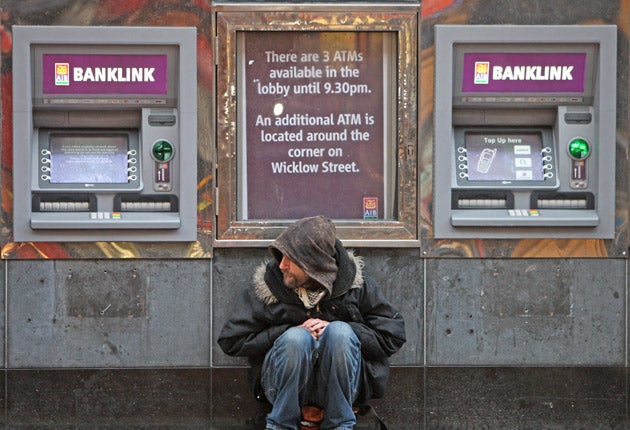David Prosser: Ireland's defiant stand against a bailout shames the bullies in the eurozone

Outlook One can't fail to be impressed by the stubbornness with which the Irish have resisted the efforts of their eurozone partners to force them to ask for a bailout they do not want and believe they do not need. But what's even more impressive is that in public at least, Ireland's leaders have managed to keep their temper, despite finding themselves in a storm not of their own making.
I say "not of their own making" because while Ireland has only itself (and its banks) to blame for the indebtedness it is now facing, its finances are in no worse a state than they were three weeks ago, when there was no clamour at all for the European Union to ride to the country's rescue.
It wasn't an Irish politician who triggered this crisis, or even a banker, but Angela Merkel, with her ill-judged attempt to appease those in her own country who fear they are being asked to underwrite the debts of less fiscally responsible members of the eurozone.
By announcing that she planned to persuade other EU members to adopt a new framework for responding to financial crises in the eurozone – and one that would see investors take a much greater share of the pain – the German Chancellor triggered a market panic. Investors in existing sovereign debt wondered whether they too might be affected by the Germans' new hardball approach, and started selling out of bonds issued by those countries considered particularly risky. Ireland found itself in the firing line, despite there having been no material change in its circumstances.
To add insult to injury, having seen Germany drop the Irish in the drink, the rest of the eurozone has rushed to hold their heads under. No one in Brussels, or elsewhere in Europe, disputes the Irish insistence that they have funds in place to keep them going until the middle of next year. No, Ireland is being asked to take one for the team; to accept a humiliating – and presumably painful – bailout in order to shore up confidence in the rest of the eurozone.
It gets worse. Many in themarket now suspect Ireland is being used as a guinea pig. The European Financial Stability Facility, they point out, actually has not a cent of the €440bn (£391bn) in emergency funding it is theoretically able to offer. Should the facility be called upon, the money would be raised by selling bonds – these would be guaranteed by EU governments, but use the indebted nations' own bonds as collateral.
What happens, wonder many in Brussels, if investors don't fancy buying those issues? Well, were it to be Portugal in need of the money – it has €4bn of debt due to mature before the end of the year – or Spain – the eurozone's third-largest economy – crisis could quickly turn into catastrophe. Ireland, though, has time on its side, so it might be the perfect test case for the efficacy of the new facility. This is not a fair fight. It may well be that the reluctance of EU officials to call publicly on Ireland to ask for help reflects their shame about the bullying that has gone on, rather than what they say is a desire to leave the decision to Dublin. Either way, one of the more remarkable aspects of this crisis is that the Irish have yet to come out swinging.
Subscribe to Independent Premium to bookmark this article
Want to bookmark your favourite articles and stories to read or reference later? Start your Independent Premium subscription today.

Join our commenting forum
Join thought-provoking conversations, follow other Independent readers and see their replies